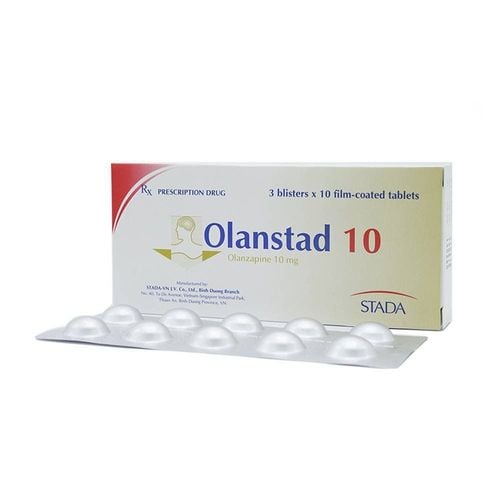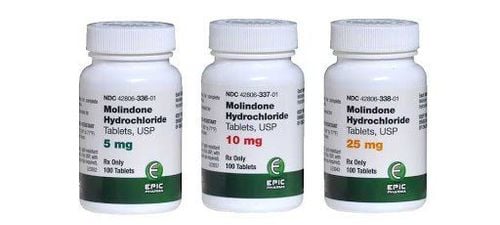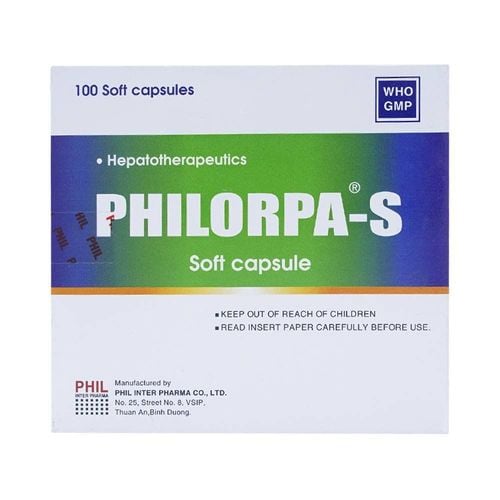This is an automatically translated article.
Musculoskeletal pain due to excessive movement, pain due to muscle injury or musculoskeletal disorders are very common in modern life. Depending on the cause and severity of the pain, the doctor will prescribe the patient one or more different pain relievers, including muscle relaxants. So what are the side effects of muscle relaxants and is it okay to take muscle relaxants?
1. Muscle relaxants are one of the effective pain relievers
The most commonly used pain relievers today are: paracetamol (acetaminophen), nonsteroidal anti-inflammatory drugs (NSAIDs), muscle relaxants, opioid pain relievers, corticosteroids, anticonvulsants (anti-seizure drugs). neuroleptics) or sedatives .... In which, muscle relaxants are a group of drugs often used in indications in combination with other drugs to treat pain caused by muscle spasms...
2. Mechanism of muscle relaxants for analgesic effect
Muscle relaxants work by mechanism of action on the human central nervous system, specifically in the spinal cord region and on the spinal cord. Muscle relaxants work to reduce muscle spasticity by increasing presynaptic inhibition of motor neurons at alpha-adrenergic receptors. This drug will act primarily on neurons with multiple synapses. Thereby reducing the excitability of motor neurons on the spinal cord, reducing muscle contractions but not causing excessive muscle weakness.
In a more understandable way, a muscle relaxant is a drug that acts on the human brain, making the brain control the body to relax the muscle, the drug will not have a direct effect on the patient's muscle.
Muscle relaxants in general usually have their maximum effect 1.5 hours after taking the drug and the drug will wear off after about 3 - 6 hours from the time of taking the drug. It can be seen that muscle relaxants have a relatively short duration of action, so patients need to take muscle relaxants several times a day (3-4 times a day). However, it still depends on the needs of the patient. Before prescribing a muscle relaxant, the physician should adjust the dose according to the patient's response, not exceed the dose for the desired therapeutic effect.
Dilators are mostly well absorbed orally, the drug is not affected by food. However, the use of muscle relaxants needs to be very cautious, these muscle relaxants can cause some adverse effects on the cardiovascular system and blood pressure such as bradycardia, hypotension.
A few common muscle relaxants today: baclofen, cyclobenzaprine, carisoprodol, eperisone... The use of muscle relaxants should be strictly according to the doctor's prescription, patients must not arbitrarily use muscle relaxants.

Uống thuốc giãn cơ có sao không là thắc mắc của nhiều người bệnh
3. What are the side effects of muscle relaxants?
Is it okay to take a muscle relaxant is a question many patients ask when a doctor prescribes muscle relaxants to relieve pain or for the purpose of surgical anesthesia... As with any drug, muscle relaxants still have the potential to cause certain side effects for patients:
Muscle relaxants antihypertensive side effect: This side effect of muscle relaxants is dose dependent, more specifically hypotension usually occurs after a patient has received a single dose of a muscle relaxant of 2 mg or more. Besides, when the patient changes position suddenly can lead to orthostatic hypotension; Muscle relaxants can cause liver damage side effects: Muscle relaxants should be used with caution in patients with impaired liver function; Muscle relaxants cause drowsiness: When using muscle relaxants that have this side effect (which can depress the nervous system), doctors need to be very careful when prescribing drugs for people who need to be awake. apples such as drivers, workers operating machinery...; Dilators may cause hallucinations in some patients taking them; Muscle relaxants side effects on the eye: In animals, relaxants cause retinal degeneration and may cause corneal opacity. To date, this side effect of muscle relaxants has not been reported in human clinical studies; Muscle relaxants side effects for elderly patients: Doctors only prescribe muscle relaxants for patients after carefully weighing the benefits to outweigh the risks. Because in clinical practice, in elderly patients, the clearance of muscle relaxants that are mainly excreted by the kidneys can be reduced by 4 times. Muscle relaxants should not be used in children under 18 years of age because there are not enough clinical trials on the safety of the drug, the trials are very limited; Patients may experience some other undesirable effects when using muscle relaxants, such as: dry mouth, abdominal pain, diarrhea, muscle weakness, back pain, fatigue, dizziness, depression. ... Some muscle relaxants can be addictive, making patients taking the muscle relaxants dependent on the drug; When a patient is taking a muscle relaxant for a long time, however, for some reason suddenly stopping the drug can cause convulsions or hallucinations. Therefore, when using the drug, the patient should follow the doctor's prescription to ensure the optimal dose and time to use the muscle relaxant.
In addition to using muscle relaxants, patients can increase exercise and sports to make their muscles more flexible and focus on diet that will make an important contribution to the process of muscle relaxation. patient. Patients need to be provided with enough nutrients, especially protein-containing foods, it is best to supplement these foods after hours of exercise.
Please dial HOTLINE for more information or register for an appointment HERE. Download MyVinmec app to make appointments faster and to manage your bookings easily.













